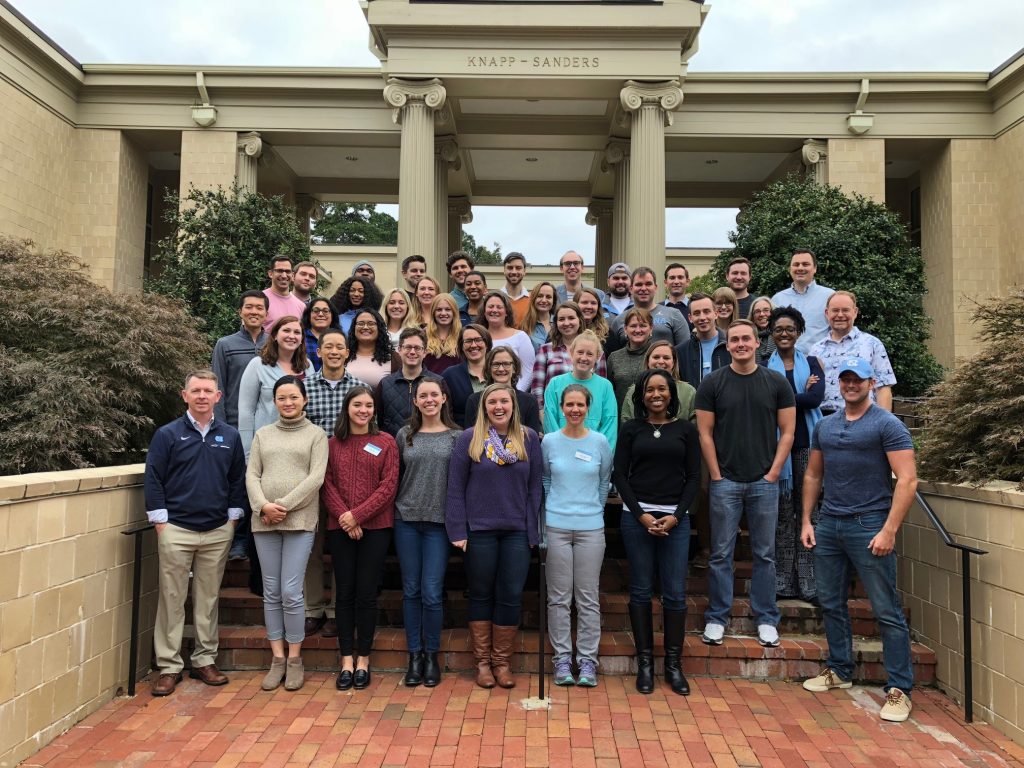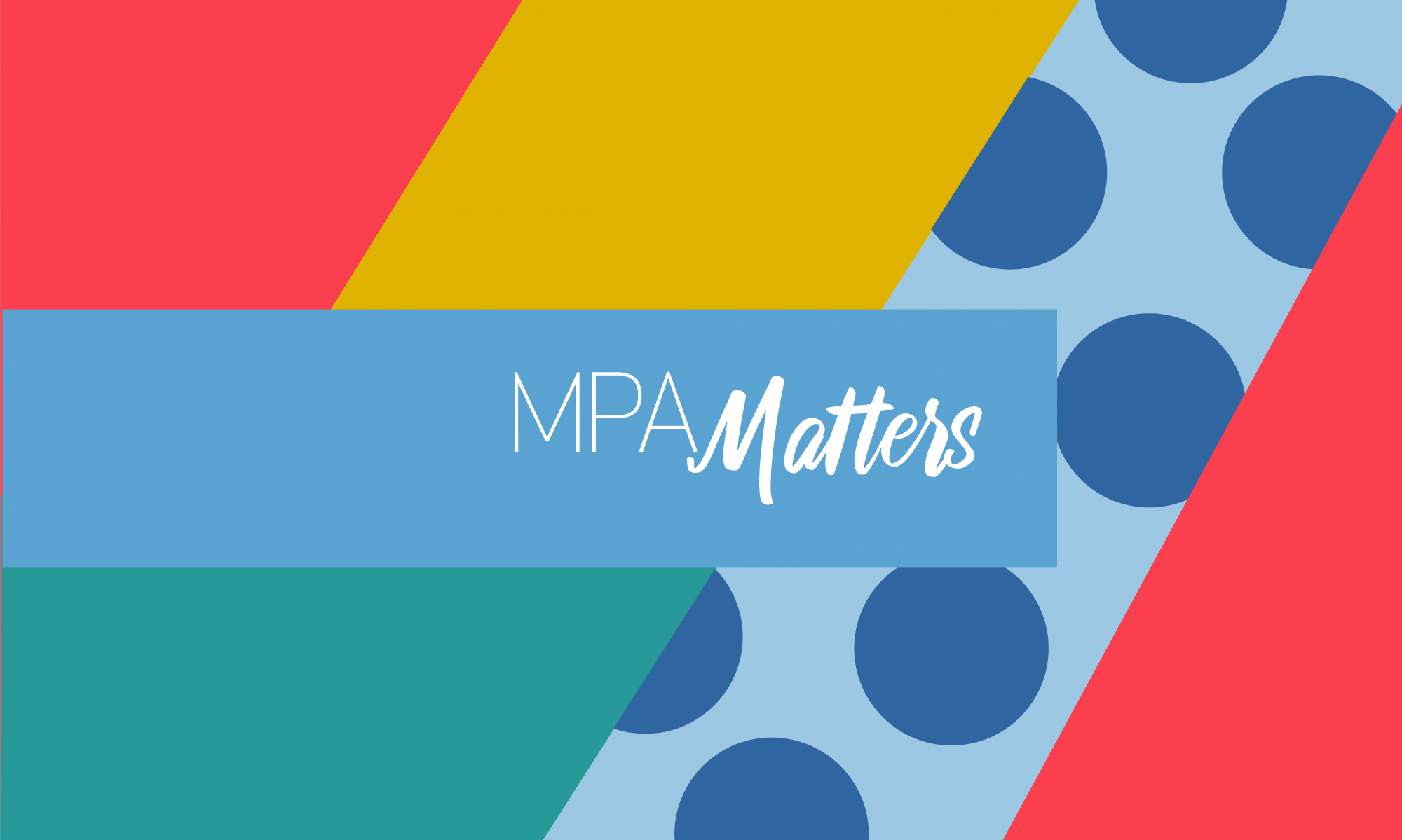Recently, the UNC MPA program held its annual fall Immersion Course, focusing on the topic of Collaborative Governance. The Immersion is an optional course that gives online and on-campus students the opportunity to come together for a full, intensive weekend of instruction and thoughtful group work and discussion for credit in the MPA program. This semester’s course was led by Professors John Stephens and Rick Morse and included 43 students, 30 from the on-line program and 13 from the on-campus format. Students completed coursework online in advance and all read the same articles and case studies to prepare for the weekend. The course featured several panels of experts from the field who were able to share their observations and lessons learned from their professional experiences
My classmate Timothy Shober attended the Immersion and he told me he really enjoyed the panels and getting to learn from “professionals from around the triangle who actively participate in collaborative governance efforts.” Another on-campus student, Jake Levitas, added that he liked hearing from “practitioners focusing on case studies the students had reviewed.” Timothy appreciated that the panelists viewed the issues “though a practical lens rather than an academic lens.”

The Immersion Crew smiles for a photo in front of UNC’s School of Government in Chapel Hill.
Reflecting on the weekend, Jake told me “the immersion is a great way to meet new people.” He especially liked getting to meet students from the online program he might not have gotten to otherwise. Timothy added that the on-line students bring a lot more work experience across many sectors (public, private, non-profit, military) to the conversation, and that many students had relevant and thoughtful examples to share from their current full-time positions. Over the course of the weekend, students from the online program had the opportunity and network with each other as well the on-campus students and the faculty. Students got a chance to learn about each others’ interests and career goals over meals and during snack breaks. A reception with alumni on Friday evening offered still more opportunities to for student to network and learn more about the field.
Summarizing his experience, Timothy said “my biggest take away was that collaboration is not an easy, efficient, or fluid process but it allows groups to leverage pooled resources to achieve better outcomes.” He believes that the collaborative process helps prevent “siloed” and unconnected services in communities across many providers in government, non-profit, and private organizations.

